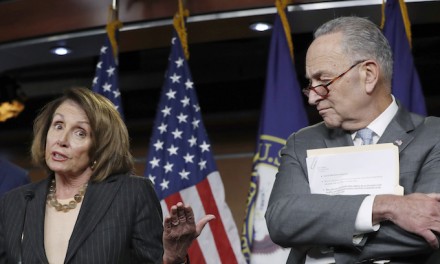A recent study revealed that for the first time in three years, government restrictions on religion and hostilities against religious groups has surged globally.
The Pew Research Center’s latest annual study on global restrictions on religion shows that there has been an uptick in the most recently recorded year (2015) in regard to religious persecution – a jump that comes after two years of decreases in the percentage of nations that registered high levels of religious limitations.
“The share of countries with ‘high’ or ‘very high’ levels of government restrictions – i.e., laws, policies and actions that restrict religious beliefs and practices – ticked up from 24 percent in 2014 to 25 percent in 2015,” Pew reported. “Meanwhile, the percentage of countries with high or very high levels of social hostilities – i.e., acts of religious hostility by private individuals, organizations or groups in society – increased in 2015, from 23 percent to 27 percent.”
Overall rise in persecution
After combining the two statistics, the rise in anti-religious activity is even more evident worldwide.
“When looking at overall levels of restrictions in 2015 – whether resulting from government policies and actions or from hostile acts by private individuals, organizations or social groups – the new study finds that 40 percent of countries had high or very high levels of restrictions, up from 34 percent in 2014,” the researchers disclosed.
A number of recent trends are responsible upward shift.
“The global rise in social hostilities reflected a number of factors, including increases in mob violence related to religion, individuals being assaulted or displaced due to their faith, and incidents where violence was used to enforce religious norms,” those conducting the study explained. “In Europe, for instance, there were 17 countries where incidents of religion-related mob violence were reported in 2015, up from nine the previous year. And sub-Saharan Africa saw a spread in violence used to enforce religious norms, such as the targeting of people with albinism for rituals by witch doctors. This type of hostility was reported in 25 countries in sub-Saharan Africa in 2015, up from nine countries in 2014.”
Christianity, in specific, has been a recent target of persecution worldwide.
“The number of countries in which Christians suffer from government restrictions and social hostilities grew from 108 to 128 in one year,” WND noted from the data.
Asia and Africa were found to be the continents where most of the aggression against religious adherents takes place.
“The most extreme levels of government restrictions were found in 23 nations, led by Egypt, China, Iran, Russian, Uzbekistan, Malaysia, Saudi Arabia, Indonesia, Syria and Morocco,” WND’s report continued. “The nations with the worst social hostilities were, in order, Syria, Nigeria, Iraq, India, Israel, Yemen, Russia, Afghanistan, Pakistan territories and Pakistan.”
Now, more than half of the nearly 200 nations examined display major forms of religious persecution.
“Of the 198 countries in the study, 105 (53 percent) experienced widespread government harassment of religious groups, up from 85 (43 percent) in 2014 and 96 (48 percent) in 2013,” Pew revealed. “Limited harassment – cases that were isolated or affected a small number of groups – also rose, taking place in 52 countries (26 percent) in 2015 (up from 44, or 22 percent of countries, in 2014).”
Crackdowns on religious activity waged by the state are also on the rise.
“Government use of force against religious groups increased as well, with 23 countries (12 percent) experiencing more than 200 cases of government force in 2015, up from 21 (11 percent) in 2014,” the researchers added. “There was an even bigger increase in the number of countries with at least one, but no more than 200 incidents of government use of force against religious groups: 83 nations (42 percent) fell into this category in 2015, an increase from 60 countries (30 percent) in 2014.”
Islamic invasion
Because of the recent tide of violence Europeans have experienced at the hands of Muslim refugees, an increase in government harassment and use of force against religious groups has been recorded across the continent.
“While the Middle East-North Africa region continued to have the largest proportion of governments that engaged in harassment and use of force against religious groups (95 percent), Europe had the largest increase in these measures in 2015,” the study noted. “More than half of the 45 countries in the region (53 percent) experienced an increase in government harassment or use of force from 2014 to 2015. Twenty-seven European countries (60 percent) saw widespread government harassment or intimidation of religious groups in 2015, up from 17 countries in 2014. And the governments of 24 countries in Europe (53 percent) used some type of force against religious groups, an increase from 15 (33 percent) in 2014.”
This is indicative of the major rise in Muslims immigrating to Europe, as approximately 700,000 arrived there in 1992 compared to 1.3 million in 2015, and as a result, an escalation in threats and attacks from Islamic terrorist groups has been witnessed in France, Germany, Belgium and numerous other European nations of late.
“France experienced several religion-related terror attacks in 2015, including the Jan. 7 shooting at the offices of the satirical magazine Charlie Hebdo and the Nov. 13 attacks claimed by the Islamic State in Iraq and Syria (ISIS) at the Bataclan concert hall and various other locations throughout Paris,” Pew researchers recounted. “In the days following the Paris attacks, Germany cancelled an international soccer match because of security threats, and Belgian authorities arrested 16 people suspected of planning similar acts.”
In response to the jihadist violence, European governments and native citizens have retaliated.
“In Europe, hostilities toward Muslims, in particular, increased considerably,” the findings revealed. “In 2015, 32 countries in Europe (71 percent) experienced social hostilities toward Muslims, up from 26 countries (58 percent) in 2014.
And even though there is little violence recorded at the hands of Christians and Jewish people in Europe, hostilities against these religious groups is also on the rise.
“By comparison, social hostilities toward Christians spread from 17 (38 percent) countries in 2014 to 21 (47 percent) in 2015,” Pew’s report stated. “Hostilities against Jews in Europe remained common and increased slightly, from 32 (71 percent) countries in 2014 to 33 (73 percent) countries in 2015. Many of the incidents targeting these religious groups occurred in the form of mob violence.”
Approximately 40 percent of the nations in the study were categorized in the most restrictive groups, where religious persecution is high or very high in regard to both government restrictions and social hostilities.
“[S]ome of these countries are among the world’s most populous – such as Indonesia and Pakistan, [and] as a result, 79 percent of the world’s population lived in countries with high or very high levels of restrictions and/or hostilities in 2015 (up from 74 percent in 2014),” Pew informed.
Persecuting Christians
Another monitor of religious persecution around the globe is provided by Open Doors USA, which annually produces its World Watch List.
Open Doors says Christian persecution takes a number of forms that are experienced worldwide.
“Christian persecution is any hostility experienced from the world as a result of one’s identification as a Christian,” the Christian nonprofit organization serving the persecuted Church explained. “Beatings, physical torture, confinement, isolation, rape, severe punishment, imprisonment, slavery, discrimination in education and employment, and even death are just a few examples of the persecution they experience on a daily basis.”
Corroborating the findings of the Pew study, the 2017 World Watch List, also found that the world’s top persecutors of Christians are in Asia and Africa. Each nation was assigned a number from 1 to 100 in the rating, with 100 denoting the highest persecution, and here are the top 10 violators: 1) North Korea– 92/100, 2) Somalia– 91/100, 3) Afghanistan – 89/100, 4) Pakistan – 88/100, 5) Sudan – 87/100, 6) Syria – 86/100, 7) Iraq – 86/100, 8) Iran – 85/100, 9) Yemen – 85/100 and 10) Eritrea – 82/100.
According to Pew, more than 75 percent of the world’s 7.5 billion inhabitants live in areas where severe religious restrictions are enforced – many against Christians. Furthermore, the State Department divulged that people in more than 60 nations face persecution from their governments – or surrounding neighbors – due to their faith in Jesus Christ.
—-
Copyright American Family News. Reprinted with permission.


















Recent Comments